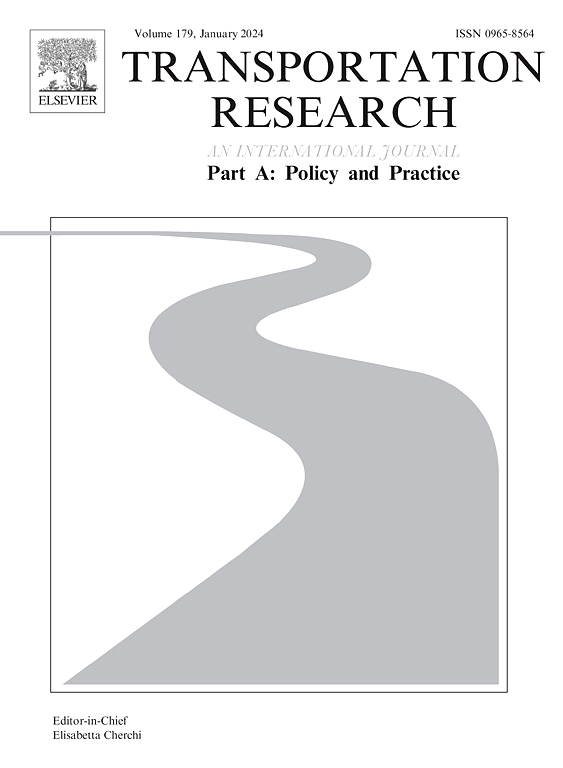Who doesn’t like a battery electric truck? Heterogeneous motivations in the uptake of low-emissions trucks in Australia
IF 6.3
1区 工程技术
Q1 ECONOMICS
Transportation Research Part A-Policy and Practice
Pub Date : 2025-01-31
DOI:10.1016/j.tra.2025.104396
引用次数: 0
Abstract
Reducing greenhouse gas emissions in the freight sector requires greater use of Battery Electric Trucks (BETs) and/or Hydrogen Fuel Cell Trucks (HFCTs). There is limited evidence on freight operator willingness to pay (WTP) for such trucks, or which factors may influence preferences. This study addresses this by reporting on a Choice Experiment survey of 199 decision-makers across Australia in various freight services sectors during mid-2023. Results show high WTP, but more so for HFCTs compared to BETs. Reasons for these preferences appear to be linked to a combination of business context, perceived performance for the transport task, including misconceptions that are confounded by limited experience with and exposure to these types of vehicles. The greatest influence on preferences remains purchase price and ongoing costs. Using Latent Class analysis, we identify three clusters of respondents. One group prefer to buy diesel trucks. A second group prefer HFCTs but is less positive about BETs. A third group prefer anything but diesel trucks. An implication of these findings is that BET/HFCTs transitions requires both financial and non-financial policies.
求助全文
约1分钟内获得全文
求助全文
来源期刊
CiteScore
13.20
自引率
7.80%
发文量
257
审稿时长
9.8 months
期刊介绍:
Transportation Research: Part A contains papers of general interest in all passenger and freight transportation modes: policy analysis, formulation and evaluation; planning; interaction with the political, socioeconomic and physical environment; design, management and evaluation of transportation systems. Topics are approached from any discipline or perspective: economics, engineering, sociology, psychology, etc. Case studies, survey and expository papers are included, as are articles which contribute to unification of the field, or to an understanding of the comparative aspects of different systems. Papers which assess the scope for technological innovation within a social or political framework are also published. The journal is international, and places equal emphasis on the problems of industrialized and non-industrialized regions.
Part A''s aims and scope are complementary to Transportation Research Part B: Methodological, Part C: Emerging Technologies and Part D: Transport and Environment. Part E: Logistics and Transportation Review. Part F: Traffic Psychology and Behaviour. The complete set forms the most cohesive and comprehensive reference of current research in transportation science.

 求助内容:
求助内容: 应助结果提醒方式:
应助结果提醒方式:


